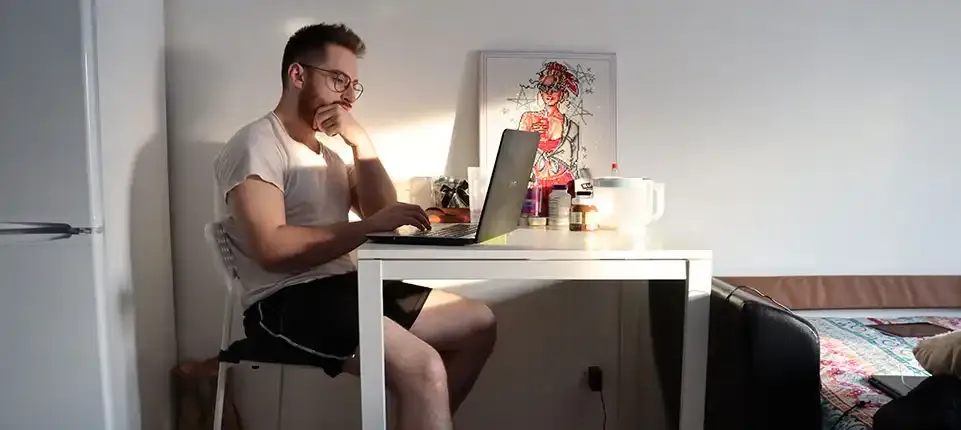April 19, 2022
Prescription meds and alcohol – what are the risks?

If you plan to drink alcohol while taking prescription medications, it’s important to know the risks.
Our liver breaks down the medications we take. But, drinking alcohol can interfere with this as alcohol is also processed by the liver.1
Mixing alcohol and medications can also increase side effects, make some medications less effective, and can even have a toxic effect.1, 2
In some cases it can cause serious illness or death.1, 2
So, it’s important to understand how your medication interacts with alcohol to reduce the risks.1
The information below is provided as a general guide only - It’s always best to discuss the side effects of any new medications with your GP or pharmacist.
Benzodiazepines and alcohol
Benzodiazepines or ‘benzos’ are used to treat conditions like anxiety, seizures and insomnia.3
Drugs include Temazepam, Diazepam and Lorazepam (brand names ‘Valium’, ‘Temaze’ and ‘Xanax’).
Some of the risks of combining benzos with alcohol are:
- dizziness and loss of coordination
- drowsiness
- increased risk of overdose.2, 3
Combining benzodiazepines and alcohol can be fatal. It’s safest to avoid drinking while taking benzodiazepines.2, 3
Opioids and alcohol
Opioids include opioid pain medications and illegal drugs like heroin.
Prescription opioids include codeine, morphine and oxycodone.
Taking opioids with alcohol can cause:
- slowed breathing
- reduced brain activity
- drowsiness
- fainting
- coma
- increased risk of overdose.2, 4
Combining opioids and alcohol can be fatal. It’s safest to avoid drinking while taking opioids.2, 4
Antidepressants and alcohol
Antidepressants are medications used to treat mental health conditions like depression and anxiety.
Depending on the type of antidepressant you’re taking, combining with alcohol can cause:
- dizziness
- drowsiness
- impaired memory
- feeling more ‘drunk’ than you otherwise would
- increased risk of high blood pressure and stroke.5, 6
This information is general, as different kinds of antidepressants act on the body in different ways.5, 6
It may not be safe to drink while taking antidepressants. For more information, talk to your prescribing doctor or pharmacist about alcohol and your medication.
You should also be wary of drinking alcohol if you’re experiencing a mental health condition, as alcohol is a depressant and may make your symptoms worse.5
Antipsychotics and alcohol
Antipsychotics are a group of medications used to treat symptoms of psychosis-like paranoia, hallucinations and confused thoughts. They’re also used for other mental health conditions such as severe depression.7
Drinking alcohol with antipsychotic medication can cause increased side effects.7
Combining alcohol with antipsychotics can cause:
- dizziness
- drowsiness
- difficulty concentrating
- impaired thinking or judgment.7
Certain antipsychotics can have more serious interactions with alcohol that can cause:
- difficulty breathing
- low blood pressure
- fainting
- coma
- seizures
- change in body temperature or heart rate
- increased risk of suicide.7
It’s safest to avoid drinking while taking antipsychotics.7
Can I drink alcohol on antibiotics?
It’s a good idea to avoid drinking alcohol if you’re feeling unwell.
Some antibiotics, including Metronidazole (Metrogyl, Metronide, Flagyl) and Tinidazole (Fasigyn, Simplotan), shouldn’t be taken with alcohol as it may lead to:
- dizziness
- drowsiness
- stomach pain
- nausea
- headaches
- a fast or irregular heartbeat
- hot flushes.8
Alcohol should be avoided for another 48 hours after you stop taking Metronidazole, and 72 hours after Tinidazole.8
It may also be best to avoid alcohol if you’re taking:
- linezolid (Xyvox)
- doxycycline (Doxsig, Doxylin)
- erythromycin (Eryc)
- isoniazid.
These drugs can be affected by alcohol, and doxycycline might also be less effective for people who have a history of drinking heavily.8
Always discuss possible side effects with your GP when starting a new course of antibiotics.
Other drugs and medications
There are many other prescription and illicit drugs that may have increased risk of side effects when mixed with alcohol.
Make sure you talk to your doctor about any medications you’re taking, and always do your research before taking any illicit drugs.
This chart contains useful information about mixing drugs and alcohol, but it should only be used as a guide. You can also find useful information on the NPS Medicinewise website.
Remember, every person reacts differently to drugs and medications.
- Medicines and alcohol: Health Direct, Australian Government; 2022 [22/3/2022].
- Weathermon R, Crabb D. Alcohol and medication interactions. Alcohol Research and Health. 1999 [23/2/2022]; 23(1):[40-54 pp.].
- Dangers of combining benzos and alcohol: American Addiction Centers; 2022 [22/3/2022].
- Dangers of Mixing Alcohol and Opiates, including Hydrocodone, Oxycodone and Morphine: American Addiction Centers; 2022 [23/2/2022].
- Cautions - antidepressants: NHS 2022 [22/3/2022].
- Medication Frequently Asked Questions: National Alliance on Mental Illness; 2022 [23/2/2022].
- Antipsychotic Medications and Alcohol Interactions 2022 [23/2/2022]. Available from:
- Antibiotics - interactions: NSH UK; 2022 [23/2/2022].


